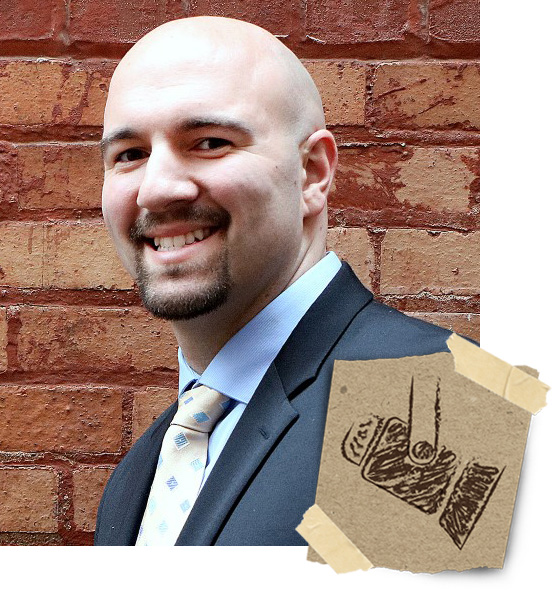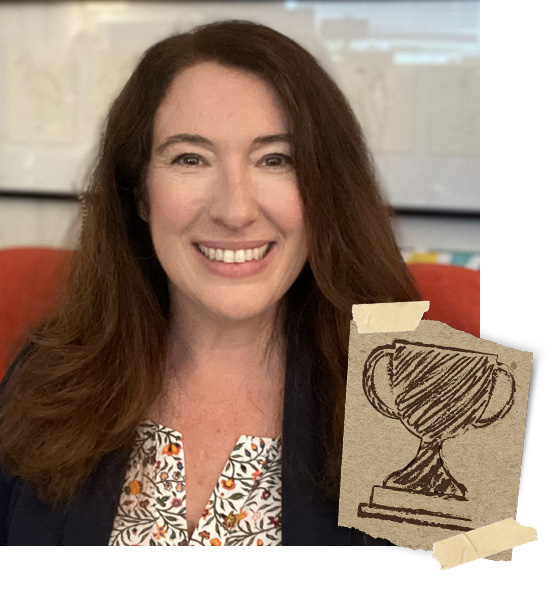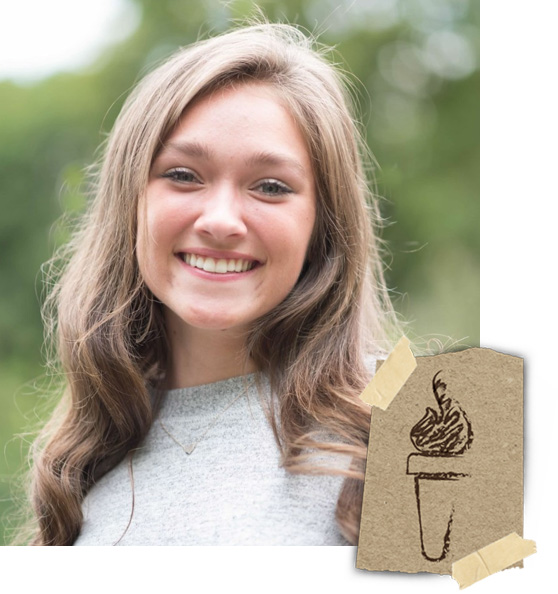Diversity Spotlight: Anthony Ianni
July 22, 2021 - Liz Schondelmayer
 Anthony Ianni graduated from MSU in 2012 with a degree in Sociology. Since then, the esteemed MSU basketball star launched his career in public speaking, establishing himself as an anti-bullying activist and an advocate for people with autism across the country. On the autism spectrum himself, Anthony works relentlessly to inspire others to chase after their dreams and make change in their communities.
Anthony Ianni graduated from MSU in 2012 with a degree in Sociology. Since then, the esteemed MSU basketball star launched his career in public speaking, establishing himself as an anti-bullying activist and an advocate for people with autism across the country. On the autism spectrum himself, Anthony works relentlessly to inspire others to chase after their dreams and make change in their communities.
During his time on the MSU basketball team, Anthony wore his green and white jersey with pride, and learned from Coach Tom Izzo the importance of treating everyone he came across with the utmost respect, kindness and professionalism.
I tell people all the time that being a basketball player for Michigan State was not only a privilege, but an honor. I got to wear the jersey of a school that I always dreamed of playing for, and I don't think there's anyone who went through the program before or after me who took more pride in putting on that uniform and running out of that tunnel to our fight song. I got chills every single time.
The experiences I had under coach Izzo were some of the greatest experiences I've had in my entire life. For example, my senior year, we got to play the first ever college basketball game on an aircraft carrier. We got to meet the men and women of our armed forces, President Obama and First Lady Obama, and that was still surreal to this day. That's something that future teams may never get to do at Michigan State - me and my teammates get to claim that!
In terms of how the experience still helps me in my work today, one thing that coach izzo taught me is how to build character and maintain that high level of character in every situation. He taught us how to represent ourselves, our families, our communities, our university, and to be respectful and professional at all times. Even now, wherever I go and speak, I'm always making sure I represent myself and everyone around me - including my alma mater - with as much respect and integrity as possible.
As a senior in college, Anthony didn't know exactly what his next steps after graduation would be. But that all changed when then-Lieutenant Governor Brian Calley invited Anthony to give a keynote speech for an autism awareness gala in Detroit in the Spring of 2012.
In Spring of 2012, MLive published an article about me growing up on the autism spectrum, and it was the first time that my story had ever gone public. I didn't know how people were going to react to it, but it actually got a lot of positive feedback. Two days after that article came out, we had our team banquet, and Brian was one of our keynote speakers. Then, two days after our banquet, my mom and dad got a phone call from Brian, asking if I would be interested in giving a keynote speech.
After we lost the Sweet 16 tournament, I told Brian that I was all in. This was during a time where, just like the majority of college seniors, I had no idea what I was going to do once I graduated. But I went to the gala and gave a ten minute speech that got a standing ovation from the audience. After I was done, I got in the car to drive my wife (who was my girlfriend at the time) home, and I said to her, "I think I know what to do now. But let me ask you a question first: Other than Dr. Temple Grandin, who is one of the most famous individuals in the world with autism, can you name someone like that who's a big inspiration / role model for the autistic community?" After 30 seconds of silence, I said, "Okay. I'm gonna go be that guy then."
Two and a half months later, that same non profit organization who did the gala hired me to do advocacy work full time, and then by the end of October 2012, I got my first speaking engagement at St. John's Middle School, and the rest is history. By mid 2020, I had spoken to over 400,000 individuals in over 500 schools and events around the state and around the country the last 4 years, and I'm not done!
A major focus of Anthony's speeches is acceptance and tolerance of others. A victim of bullying in school, Anthony hopes to raise awareness about the impact of bullying and encourage students to speak out against it.
I endured a lot of bullying growing up, for mainly two reasons: one, for my autism, because I would say and do things so outside of the ordinary, I got bullied and teased; and second, I was extremely tall for my age. At 11, I was six feet tall with a size 13 shoe. So I had a lot of doubters, and I had to deal with a lot of disrespect up until I was a sophomore in high school.
My number one take-away that I have for students is to go out and make the change that you want to see in life. One of the things that I tell students is that change doesn't start with me, your principal, or the president.... It starts with them, the students. They're the ones who change someone's day from bad to great and someone's life from terrible to incredible. And at the end of the day, they could save someone's life.
I also like to show them that the changes they make have a powerful ripple effect. That change starts in their school, then goes into their community, and then their state and country and even possibly the entire world. The saying, "make the change," comes from Michael Jackson's song, "Man in the Mirror," as that's the last thing he says in the song. It's an intentional action we have to take.
And my message really resonates with students. For example, I will never forget when, the day after my first ever school presentation, I got a phone call from a mom. She was crying and said, "I just want to thank you for speaking at my son's school. My son, who's just like you - on the autism spectrum - came home the other day and told me he had one of the best days ever. Not only did he get to meet another individual like him with autism, but his bully who has been tormenting him for over 5 years for his autism apologized." I don't think anything will ever top that moment for me.
As an advocate for people with autism, Anthony emphasizes the importance of recognizing and celebrating the unique talents and gifts that people with autism have - no matter where they are on the spectrum.
When it comes to understanding and accepting people with autism, society needs to realize that just because we share the same label - "autistic" - we don't always have the same characteristics. One common criticism I get from people when they look at me and hear me speak is, "Oh, he doesn't actually have autism, because he doesn't look or act like a typical person with autism." And my response back to that is, what characteristics are you talking about? What is a typical person with autism supposed to look/act like?
Society doesn't always see how talented we are, especially people with autism on the "lower" end of the spectrum. A lot of parents will say to me, "Oh, my child won't ever end up like you, because they're really low on the spectrum, and they're gonna need help for the rest of their lives." But I tell them, "I don't want your child to be like me. I want them to be like them . They may be able to do things I'll never be able to do. You need to continue to push your kid high and let them fly - they may go a lot farther than you ever thought they could go."
Finally, Anthony offers guidance on how each of us can be an ally to the people in our lives with a disability.
One great way to be an ally to someone in your life with a disability is to get to know them. Sit down with them and ask them what works for them and what doesn't, what's actually helpful for them, what makes them feel supported, etc.
I've really enjoyed and appreciated how my colleagues at the Michigan Department of Civil Rights have sat down with me, gotten to know me, and worked to understand what does and doesn't work for me. If I need help, I'm not afraid to ask one of my coworkers for clarification, guidance or resources. That's a big testament to the effort my colleagues have put into making my experience even better, and I think that's something we can all do for each other.
Anthony's first book, "Centered: Autism, Basketball, and One Athlete's Dreams," will be available this September.
Read more:

Diversity Champion
Faculty/Staff
Ms. Michele Brock
Ms. Michele Brock is the School of Social Work's Director of Community Programs at MSU. She is a disability justice advocate, whose work and research on health disabilities advances our understanding of the plight of people living with disabilities.

Diversity Torch
Student
Katie Pezzetti
Katie Pezzetti an MSU junior majoring in Human Resources and Labor Relations in the College of Social Science. As an intern with the Michigan Employment Clinic, she worked to support jobseekers with disabilities in creating resumes, preparing for interviews, and finding employment. She also helped create an employer pledge in which employers commit to hiring people with disabilities.

Diversity Matters
We strive to cultivate an inclusive and welcoming college environment that celebrates a diversity of people, ideas, and perspectives.

